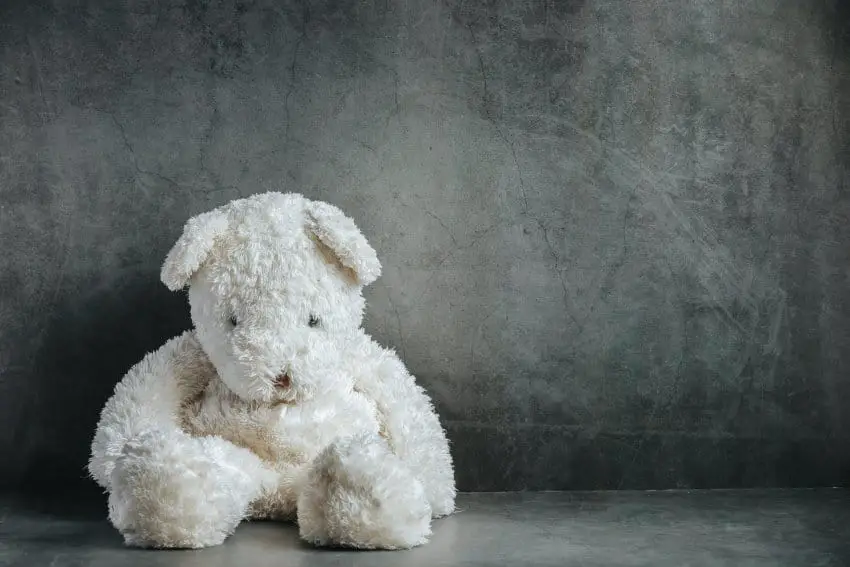Will A Narcissist Actually Hurt Their Child?
*We may earn a commission for purchases made using our links. Please see our disclosure to learn more.
It’s hard to imagine that anyone would hurt a child, but sadly, it happens all the time. Narcissists are well-known for being self-absorbed and manipulative, but you might think they would be different with their own child. They are emotionally abusive to almost everyone in their life, but would they actually hurt their own child?
Narcissists put their needs above everyone else in their life, and that includes their own children. While narcissists can be physically abusive, even if they aren’t, they will hurt their child with emotional abuse. They often leave them with numerous emotional triggers and lifelong problems.
If you’re co-parenting with a narcissist, it’s vital for your children’s well-being that you understand how they can harm your child. It’s also important that, if you’ve been the victim of narcissistic abuse, you begin the journey to heal that trauma so you can pursue your own dreams. Read on to learn how a narcissist hurts their children and what you can do to heal from such abuse.
How Do Narcissists Hurt Their Children?
Narcissists have such a fragile sense of self that they need other people to feed them a steady diet of adoration and praise to prevent a collapse of their self-image. This is how they can support the grandiose ideas they have created for themselves as a traumatized child.

As a result of the role that other people play in helping the narcissist maintain their self-image, they come to see those other people as mere extensions of their own identity. They don’t experience them as independent individuals with their own needs and desires.
This distorted view of reality is how the narcissist sees everyone in their life, including their own children. As mere extensions of their own identity, in the narcissist’s mind, other people exist only to serve their needs. They believe, therefore, they are entitled to do basically whatever they want with their own children.
Just like their other relationships, narcissists start out idealizing their children, and they develop unrealistically high expectations for them as they do with anyone else in their life. Eventually, the child can’t live up to those expectations, and the narcissist begins to devalue them.
Of course, the child wants to please their parent, and they often become codependent as a result of the emotional trauma created by narcissistic abuse. They begin to ignore their own needs as they desperately try to please their narcissistic parent.
Another way the narcissist hurts their child is to make them into a golden child. Though the narcissist favors their golden child, they actually do more damage to this child than to a child they might make into a scapegoat. The golden child often becomes a narcissist themselves and continues the cycle of abuse.
The Golden Child’s Pain
Though the golden child of a narcissist is often treated as being above reproach by the narcissist, that child is not able to become their own person. The narcissist expects that child to simply be a reflection of the narcissist’s idealized self, even if that is not what the child wants.

In essence, the narcissistic parent feels as though they ‘own’ the gold child because they treat them as the special child. They expect absolute loyalty and complete compliance. This child is never allowed to have their own dreams, form their own relationships, or make their own choices.
Should they dare to deviate from their narcissistic parent’s wishes, they face the worst of the narcissist’s punishments: guilt trips, judgment, a withdrawal of the narcissist’s conditional love, abandonment, and possibly much worse.
The golden child is not allowed to establish their own separate identity as a person, nor are they allowed to become independent from their manipulative, controlling parent. This child experiences a mixture of arrogance as a result of their sense of superiority over other children in the family, but that superiority is combined with learned helplessness. They are never allowed to make decisions for themselves.
They often experience cognitive dissonance that results from feeling unworthy of their special status, but being told they are better than others. They may also struggle with having other people view them as ordinary when they are constantly told they are extraordinary.
As a result of this confusing mixture of experiences and the abusive treatment from their narcissistic parent, the golden child is not able to assert boundaries, form appropriate intimate relationships, or break away from their narcissistic parent’s control.
The Scapegoat’s Pain
On the other end of the narcissistic abuse spectrum is the scapegoat. This is the child who is blamed for everything that goes wrong in the family. The narcissistic parent is basically projecting all of their self-loathing onto this child.

The scapegoat is given inappropriate responsibilities, and they suffer extreme neglect. The scapegoat is usually the child who is somehow able to see through their narcissistic parent’s dysfunctional behavior. They frequently rebel against their family and their role within the family. They may also try to protect younger siblings or a non-narcissistic parent.
From the narcissist’s perspective, they are enraged by this child’s ability to see through their abuse. They frequently erupt in rage at this child, and they gaslight them all the time to shut down their attempts to call the narcissist out.
The narcissist will also often smear these children to extended family members and others in the family’s social circle. The result of this abuse is that the development of this child’s identity is also distorted by narcissistic projection.
They have difficulty trusting their own perceptions of reality because the narcissist has gaslighted them so frequently. They feel unloved and often leave home at an early age. They also frequently suffer from substance abuse and problems developing healthy intimate relationships. These problems can easily last a lifetime.
How to Heal from Narcissistic Abuse in Childhood

The children of narcissists cannot expect the narcissist to ever realize the wrongs they have committed. As Christine Cox, who studied child psychology at Purdue University, so aptly puts it, “They are devoid of empathy. It’s a huge component of being a narcissist in the first place. They cannot relate to how they’ve hurt anyone—including their children.”
That means the child and anyone who truly loves them will have to seek out a path to healing on their own. It is possible to heal yourself through personal growth work and therapy, but it is a long journey. It will require a commitment to seeing your narcissistic parent for what they truly are – mentally ill.
It also involves inner child work where you can provide your own inner child with the unconditional love they should have received from their narcissistic parent. It’s painful to face the abuse you’re endured, but it’s more painful to continue to live in the shadow of narcissistic abuse.
You can heal, and you deserve to heal. There are many workshops that can help you, but it’s also a great idea to work with a therapist. They can help you repair your damaged sense of identity and see the abuse for what it truly was – the desperate act of a traumatized child who feels unloved themselves.
What’s probably the most important, they can help you find forgiveness in your heart for your narcissistic abuser. Forgiveness does not mean allowing the abuse to continue, and it is really more important for you than your narcissistic parent. When you can forgive them, you can forgive yourself, and from there, you can achieve true healing.
Final Thoughts
Narcissists will hurt everyone in their life, including their own children. They do this because they are themselves traumatized, but they don’t know how to help themselves. They can’t even admit they are the ones doing the damage. Instead, they manipulate everyone they love to try and control them. A big way they do this is by pushing your buttons which means activating your emotional triggers.
One important step you can take to heal from this toxicity is to defuse and heal those old emotional wounds so they can’t be used against you. That’s why I’ve created this free 5 Step Roadmap to Heal Emotional Triggers. It will help you identify, defuse, and even heal your emotional triggers. Just click on this link, and I’ll send it directly to your inbox. It’s an important first step in the healing process.
--
If you want more tips for dealing with narcissists, setting boundaries, and managing emotional triggers, make sure you subscribe to my youtube channel




